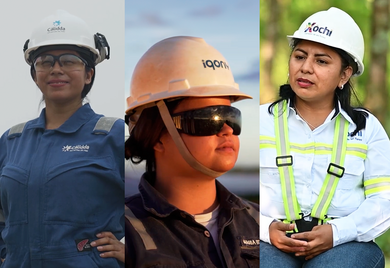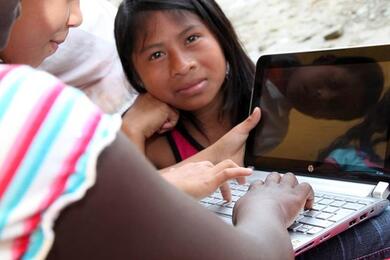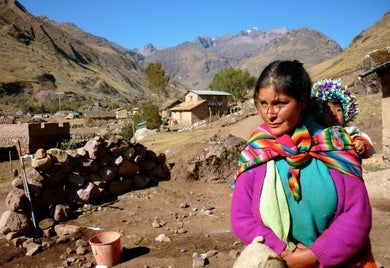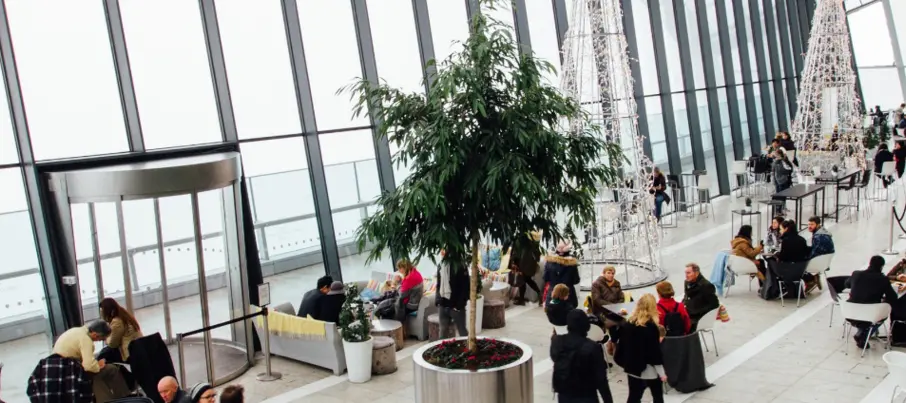Blogs Navigation
Sustainable BusinessRecent posts

Financial Health: Driving Growth in Latin America and the Caribbean
According to the latest Global Findex database, the proportion of adults in Latin America and the Caribbean (LAC) with account ownership rose from 39% in 2011 to over 75% in 2025. This increase was driven by the rise of digital-first financial service providers, expanded government transfers, and innovations that enhance the value proposition, such as the growth of e-commerce and instant payment systems in countries like Brazil, Peru, and Costa Rica.

IDB Invest and the New Push for the Private Sector in Paraguay
Imagine investing in a portfolio of projects in a country with sustained economic growth, low inflation, abundant clean energy, and preferential access to a regional market of 270 million consumers. That country is Paraguay, where IDB Invest has committed to mobilizing up to $1 billion to support strategic private-sector projects that drive sustainable development.

Energy and Transport Infrastructure: Projects Driving Jobs and Transforming Communities
IDB Invest works to boost job creation through the private sector and ensure these opportunities reach areas with the potential to develop new productive sectors and generate formal employment. Financing energy and transport infrastructure projects in Latin America and the Caribbean has been crucial for creating quality jobs and increasing women's workforce participation.

Technology to access an unexplored market in Peru
Good news for companies and financial institutions interested in tapping into new markets: Peruvians who live at the base of the pyramid (BoP) spent 160 percent more on information and communications technologies (ICT) in 2013 than in 2000 –from US$20 per capita per year to US$52. Currently, four out of ten BoP heads of households use the internet. More than half of them are between 18 and 35 years old. Additionally, 95 percent of the country’s BoP heads of household own a cellphone, and predominantly the younger ones use it to access the internet.

The best of 2015: Four transportation projects leading in sustainability
Climate change and transportation have an intimate yet complex relationship. Transport accounts for one-fifth of the world’s energy use and one-quarter of energy-related CO2 emissions, making it a main cause of global warming. On the other hand, climate change can severely affect transportation systems, resulting in shorter project life spans, reduced quality of infrastructure services and increased maintenance and operating costs. These impacts on infrastructure harm the economy as a whole by causing trade and supply chain disruptions and hindering access to markets, schools and health centers.

The best of 2015: How to reduce energy costs and become more competitive
These days reducing production costs to increase competitiveness is a must. In a report titled Climate Solutions, the World Wildlife Fund notes that the world could cut energy consumption 40 percent by 2050 through improving energy efficiency and energy conservation. But when looking for alternatives that don't sacrifice the quality of raw materials, not many entrepreneurs realize that a change in energy policy could save them a considerable amount on their energy bills.

The best of 2015: Surprising habits of productive women in the private sector
In Argentina, 61 percent of mothers work outside the home. In Chile, the US and Mexico, those numbers are 59 percent, 57 percent and 42 percent, respectively. Globally, that percentage is growing. As I prepare to join these women after the birth of my second child, I know I must find ways to be more productive and disciplined in my corporate environment. To tackle this, I spent my last weeks of maternity leave seeking the advice of the most highly productive women in the private sector I know. Their surprising answers on work-life balance, professional success and doing more with less offer tools for women, men and companies more broadly.

The best of 2015: Counterintuitive ideas for sustainable enterprises
Most business models are formulated by the top of the economic pyramid. Many business leaders and academics write about the "must haves" of a successful base of the pyramid (BOP) business model. Still quite a few of those business endeavors fail. While reasons for failure vary, experience shows that the ability to observe, listen and understand the BOP’s social codes and priorities is key to successfully formulate and set up profitable, sustainable enterprises that target low-income markets.

The best of 2015: How to make cultural tourism sustainable
If you want to start a hotel, the normal thing to do is buy some land, build the hotel, hire a few locals for cooking, cleaning and maintenance and open for business.


